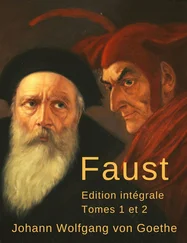During this time he’d felt he was learning a completely new language. . or at least relearning the existing language from the ground up. Since now he no longer took in phrases for the sake of their message, rather seeking a hidden meaning in a dark realm behind them, at the same time forced to consider the language of gestures which carried each phrase (probably only falsifying it still further!), for him all speech had gradually become a conspiracy. And the more he attempted to penetrate this conspiracy, the more urgent a suspicion rose within him: everyone made themselves understood by means of language, everyone but him. . he didn’t know these means, these means lay behind the message which itself emerged banal and pointless. Suddenly all phrases had turned impenetrable. . precisely because the words in them clove together by such force of habit that they kept repeating the same trivia. More and more he lived with the sense of having to break through a wall to arrive at the same understanding that came easily to everyone sitting behind this wall (behind the wall understanding was interrupted only occasionally by the jitter of the refrigerators). — All his life he had talked just like them. . he’d only written differently; he hadn’t even noticed what he’d been doing there. Now he’d been declared a writer, and suddenly the language he had once co-inhabited had become a room from which he was shut out.
Perhaps he could penetrate the closed rooms of this language from below. . from underground, through its basements, through its floor?
Of course he shared none of these thoughts with the boss, sus- pecting that he’d agree with him; for the boss, too, it could only stand to reason that people who talked to one another constituted a conspiracy. . which could be countered only with the same means. But the boss didn’t take it all that seriously; whenever they ran into each other in the town’s fog, he had good advice to offer. . You have to listen to the man on the street, he said, don’t let anyone tell you otherwise. There’s not a writer here who can deliver that like you can! — And when we’ve heard enough we’ll kick him to the kerb, said W.
The boss looked flustered, unsure whether to take these words as a joke. . W. didn’t know himself. But the boss noticed at once that W. had troubling thoughts on his mind, and barraged him with more and more ostensibly comforting phrases. — Do you think I’m not feeling OK, or what? W. asked him one day. What is it you’re constantly having to cheer me up about? — You know, a writer. . actually, any thinking person in this day and age can’t always feel OK. Maybe only rarely, even, but that’s how it’s got to be, and it’s better that way, the boss replied. And then he brought to bear one of his key sayings which left little to be desired in terms of universality: You know, you see best when you look from the dark into the light! And not the other way around. .
The boss proffered most of his comforting sayings with a sort of breezy irony, relentlessly constructive, completely unperturbed when he met with occasional resistance. He was one of those functionaries who went unfazed by his underlings’ obtuseness so long as they still functioned. . and it always seemed to take a while before he grasped that someone didn’t want to function. Usually he made a show of superiority that was just another form of incomprehension; he thought resistance so absurd that anyone who displayed the least sign of it immediately got a pitying clap on the shoulder. . it was stupidity, and for someone absolutely convinced of the human capacity for change (he was one of those rare bosses who’d read Brecht), stupidity was a deplorable thing. — And so at all times he radiated a semblance of broad bonhomie which showed how accustomed he was to reigning irreplaceably and unconditionally over the town and the surrounding communities.
You see best from the dark into the light! W. had come to Berlin with these words in his head, and it surprised him what a distinct image of that boss’ being he had here. . in contradiction to his otherwise foggy impressions. But he had escaped the sphere of the gentleman in the expensive suede jacket (so his thinking went); here he could forget him. . the gentleman’s sayings were things he could, if he liked, assimilate, the language was public property, even if some regional potentate had performed his variations on it.
Here he could forget the boss. . yet at this remove from the small town it was futile to deny to himself that he and the boss had had conversations one would have to describe as fairly exhaustive. . down there he’d been able to deny it, even with a degree of success. Now he had to admit to himself that requests had been made of him which, strictly speaking, could be called commands. True, he hadn’t taken them as such. . his encounters with the boss had always followed a similar pattern; for W. they lay hidden in impenetrable gloom, even when he’d been accosted during the midday break (while still working as a stoker) on his way into town to buy one of the several identical newspapers. — Come on up for a moment, I’ll treat you to a coffee in my office, Room 17.—W. shook his head, indicating his work clothes. . You know I’ve got nothing to offer, he replied. — Oh yes you do, said the boss, I can talk about literature with you, and that means quite a bit! There’s no way I can do that with that longlegs, say — there’s no one in this backwater to have a real conversation with.
He said these things with ironic melancholy; W. felt how susceptible he was to that sort of tone. The boss seemed to intuit this, redoubling his efforts and ambushing W. at dusk now too: Did you see that on TV just now? They’ve arrested two of those young authors in Berlin again! Well, if that ever happens to you, and it can happen any time, I practically see it coming, just ask for me. . You know, Room 17! But don’t say anything until it happens! Not a word! Take care, one way or the other it can happen soon. — Do you know anything specific? asked W. — I’ll tell you soon enough, if I can. .
And shortly after that he said: I think we ought to finally get back to our conversations, they started off so nicely. . tomorrow afternoon in my office! And forget all the things I told you the other day, forget about it, it’s better that way. .—W. was unaware of any conversations that had started off; here too he must have been peering into a language chamber from which he was shut out. — Finally he was unable to shake the suspicion that they were shadowing him on his fog-shrouded nocturnal errands (this settled his move to Berlin). . the boss had even indirectly admitted it when yet again expressing his dissatisfaction with the lanky ‘rookie’ whom W. had first met at his front door: apparently he was excessively cautious and always kept a respectful distance from his target. . it looked like he’d stay a rookie forever, the long-legged loser! I’m sorry, I can’t do a thing with the tall guy, I’m sure he means well, but I need a replacement! Best of all, let’s turn the tables, and from now on you follow him. Put him to the test. After all, they call rookies probationers. . don’t they?
In this town the target the boss had mentioned could of course refer only to W. . he had a bad case of respectful distance as well, another thing he realized only in Berlin.
Now he’d put a real remove between himself and the boss. . in Berlin it was like waking up for real (as opposed to that rude awakening at the kitchen table down there in the town, his head immersed again immediately in the fog, in the smoke); here in Berlin most of the phrases he thought he’d forgotten seemed to reach his brain belatedly. . suddenly he realized he’d let himself be confused. And it still seemed possible to find his way back to the state before this confusion; perhaps first he’d have to stop regarding himself as this weird writer?
Читать дальше












